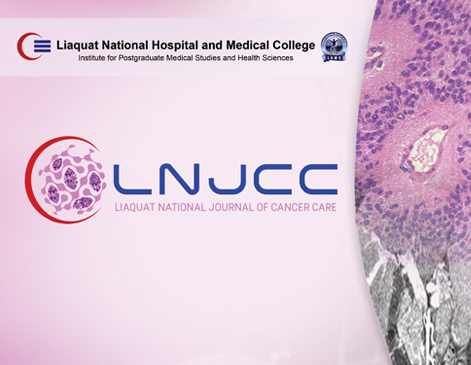Publication Ethics
Publication Ethics Statement
LNH&MC journals fully adhere to the best practice guidelines of the Committee on Publication Ethics.
Editors of LNH&MC journals implement a strict peer review process and firm ethical policies and standards to make sure the increase of high-quality scientific research in the field of academic publishing. When we are cognizant of ethical issues, we are unswerving to investigating and taking essential actions to keep the literature’s integrity and make certain the safety of research participants.
Scientific publishing involves a careful and systematic process by publishers and editors. This needs to be handled in an effective and proficient manner. Publishers always try to work closely with journal editors, authors, and peer reviewers for sustaining high ethical standards for high-quality scientific publishing.
The key points of Liaquat National Hospital and Medical College (LNH&MC) publishing ethics for all groups associated in the publishing process are as follows:
Guidelines for Editors
- Journal editors have an important role in making important editorial decisions on all peer-reviewed articles submitted for publication.
- Editors should keep the lucidity of scholarly research and records, eliminate the need for professional cooperation with ethical standards, and be willing to publish retractions, corrections, and errata whenever necessary.
- Editors should evaluate the scientific quality and intellectual content of the manuscript, and must not make any biased decisions based on race, gender, geographic origin, or the author’s religion. Editors should empirically assess the manuscript based on its academic value, without any commercial or personal interests.
- Editors shall not reveal any information related to the submitted articles before their publication.
- The integrity of the promotion of research must be maintained. If the publisher observes any type of misconduct in the research at any stage, it should conduct a prompt and detailed investigation under the appropriate authority. In addition, if any suspicious behavior is found during peer review, it should be resolved carefully.
Guidelines for Reviewers
- Perform a detailed, productive and fair assessment of the scientific content of the work in a timely manner.
- State whether the article is relevant, concise, and clear, and evaluate originality and scientific accuracy.
- Keep the discretion of the entire review process.
- Notify journal editors of any monetary or individual conflicts of interest, and refuse to review manuscripts when there is a possibility of such conflicts.
- Inform the journal editors of any ethical issues that existed in their evaluation of the submitted articles, such as any defilement of the ethical treatment of animal and/or human subjects or any significant similarities between previously published articles and any reviewed manuscripts.
Guidelines for Authors
- All works stated in the article must be novel and must not be plagiarized in any form.
- The work should not be published elsewhere or submitted to any other journal when submitted to LNH&MC journals.
- Must clearly admit any potential conflicts of interest.
- Appropriate acknowledgment must be given to other work (any individual, company or organization) cited/quoted. Any content used from other sources must be approved.
- Only those who have made any substantial contributions to the interpretation or composition of the submitted work can be listed as "authors". And other contributors should be called "co-authors".
Authorship
The journal follows the guidelines of COPE and ICMJE criteria for authorship which states authorship to be based on following criteria:
- Substantial contributions to the conception or design of the work; or the acquisition, analysis, or interpretation of data for the work; AND
- Drafting the work or revising it critically for important intellectual content; AND
- Final approval of the version to be published; AND
- Agreement to be accountable for all aspects of the work in ensuring that questions related to the accuracy or integrity of any part of the work are appropriately investigated and resolved.
Data Fabrication and Falsification
Authors of submitted or published articles may be sanctioned and published articles may be withdrawn if found to have forged or falsified results, including image processing.
Citation Manipulation
Authors who submit manuscripts that are found to contain citations whose primary purpose is to increase the number of citations to a given author's work or articles published in a particular journal may be subject to sanctions. Likewise, Editors and reviewers shall not require authors to include references simply to increase citations to their own or colleagues' work, the journal, or another journal related to them.
Multiple Submissions and Redundant Publications
It is a condition of publication that manuscripts submitted to LNH&MC journals have not been published and will not be simultaneously submitted or published elsewhere. Redundant publication and inappropriate division of research results into multiple articles may result in rejection or request for combined submission of manuscripts and corrections to published articles.
Conflict of Interest
Authors must clearly acknowledge financial contributions and any potential conflicts of interest that may be considered contradictory. Authors should explain why every interest can represent a conflict. If there is no conflict, the authors should state this, “The authors declare no conflict of interest”. If conflicts of interest are revealed after publication, this may discomfit authors, editors and journals. It might be essential to post corrigendum or reassess the review process.
Data Backup Policy
To ensure long-term accessibility and safeguard the scholarly record, all published content of this journal is preserved through reliable digital archiving. The journal partners with the Internet Archive, which provides secure storage and permanent availability of articles for future reference and citation.
Ownership
Liaquat National Journal of Cancer Care is owned and funded by the Liaquat National Hospital and Medical College.


